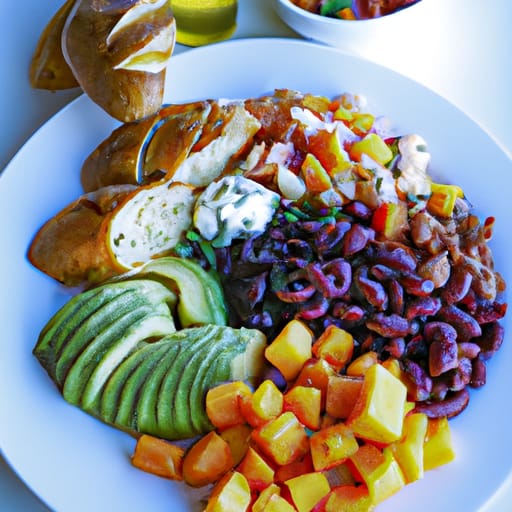Health and Wellness Foods
Here at Cup a Cheers we focus on Health and wellness foods that are specifically designed to promote and support overall well-being and good health. These foods are often chosen for their nutritional benefits and may have characteristics that make them beneficial for various aspects of health. Here are some categories and examples of health and wellness foods:
- Fruits and Vegetables: Fruits and vegetables are rich in essential vitamins, minerals, fiber, and antioxidants. They are fundamental components of a healthy diet. Examples include berries, leafy greens, broccoli, carrots, and sweet potatoes.
- Whole Grains: Whole grains are a good source of fiber, vitamins, and minerals. They can help regulate blood sugar and promote heart health. Examples include oats, quinoa, brown rice, and whole wheat.
- Lean Proteins: Lean sources of protein are essential for muscle development and repair. Examples include skinless poultry, fish, tofu, and legumes like beans and lentils.
- Nuts and Seeds: These are nutrient-dense snacks that provide healthy fats, protein, and a variety of vitamins and minerals. Examples include almonds, walnuts, chia seeds, and flaxseeds.
- Dairy and Dairy Alternatives: Dairy products like yogurt and milk (or dairy alternatives like almond or soy milk) are rich in calcium and protein. They support bone health and can be part of a balanced diet.
- Fish: Fatty fish such as salmon, mackerel, and sardines are high in omega-3 fatty acids, which are beneficial for heart health and brain function.
- Herbs and Spices: Many herbs and spices have anti-inflammatory and antioxidant properties. Examples include turmeric, ginger, garlic, and cinnamon.
- Probiotics: Foods like yogurt, kefir, and fermented vegetables contain probiotics that promote gut health and support the immune system.
- Superfoods: These are foods that are exceptionally rich in nutrients and antioxidants. Examples include blueberries, kale, spinach, and acai berries.
- Functional Foods: These are foods that have been fortified or enhanced with specific nutrients or ingredients to provide additional health benefits. Examples include fortified cereals, vitamin-fortified beverages, and protein-enriched products.
- Plant-Based and Vegan Foods: Plant-based diets have gained popularity due to their potential health benefits. These diets focus on foods derived from plants, such as fruits, vegetables, grains, nuts, and seeds.
- Gluten-Free and Allergen-Free Foods: For individuals with specific dietary needs, there are gluten-free, nut-free, and other allergen-free options available to support their health and wellness.
It’s important to note that while these foods can contribute to a healthy diet, overall dietary patterns, portion control, and individual nutritional needs are also crucial factors in maintaining good health and wellness. Additionally, consulting with a healthcare professional or registered dietitian can help create a personalized nutrition plan that suits an individual’s specific health goals and requirements.


